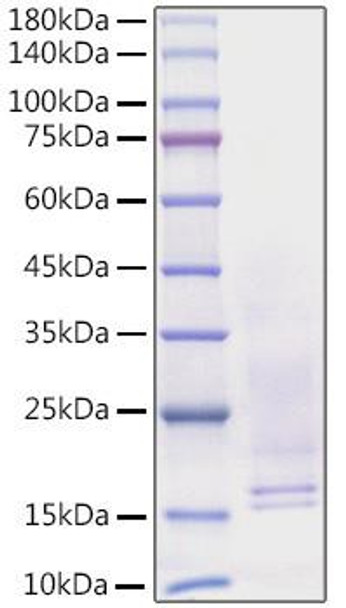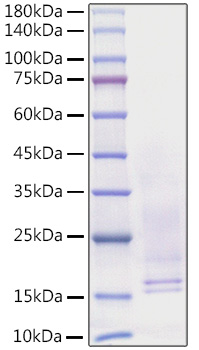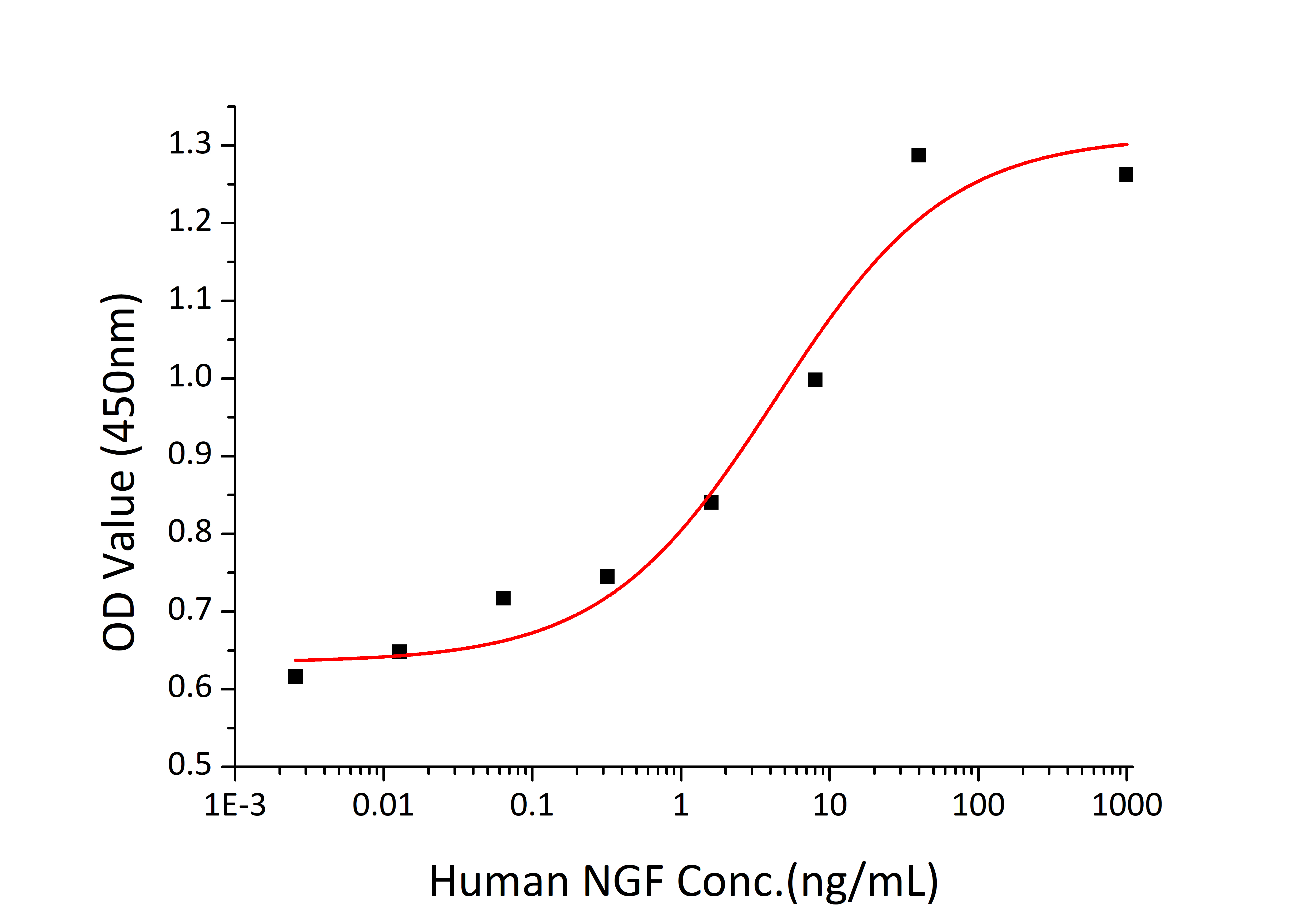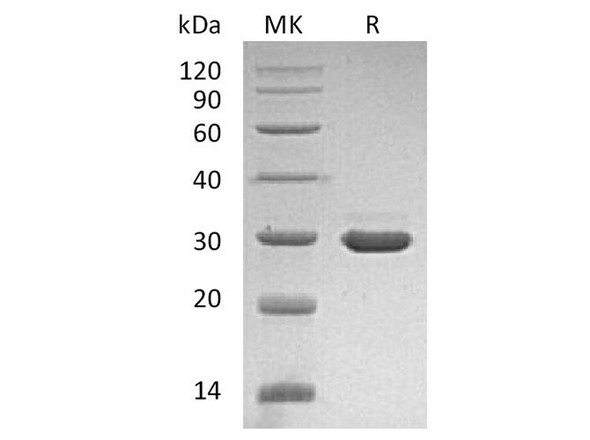Description
Recombinant Human Beta-nerve growth factor/NGFB Protein
The Recombinant Human Beta-nerve growth factor/NGFB Protein is a biologically active recombinant protein that plays a significant role in various cellular processes and signaling pathways in human biology. This protein is widely employed in immunological research, cell biology studies, protein-protein interaction analyses, and therapeutic development, providing researchers with a reliable tool for investigating Beta-nerve growth factor/NGFB function and its implications in health and disease.
This product (SKU: RPCB1092) is produced using HEK293 cells and features a C-His tag for convenient detection and purification. The protein exhibits a calculated molecular weight of 25.78 kDa with an observed molecular weight of 15-20 kDa under denaturing conditions, achieving ≥ 90 % as determined by SDS-PAGE.. Functional bioactivity has been validated through rigorous quality control assays, confirming its suitability for demanding research applications.
Key Features
| High Purity by Affinity Chromatography | |
| Mammalian & Bacterial Expression Systems | |
| High lot-to-lot consistency via strict QC |
| Product Name: | Recombinant Human Beta-nerve growth factor/NGFB Protein |
| SKU: | RPCB1092 |
| Size: | 10 μg , 20 μg , 50 μg , 100 μg |
| Reactivity: | Human |
| Synonyms: | NGFB, HSAN5, Beta-NGF |
| Tag: | C-His |
| Expression Host: | HEK293 cells |
| Calculated MW: | 25.78 kDa |
| Observed MW: | 15-20 kDa |
| Gene ID: | 4803 |
| Protein Description: | High quality, high purity and low endotoxin recombinant Recombinant Human Beta-nerve growth factor/NGFB Protein (RPCB1092), tested reactivity in HEK293 cells and has been validated in SDS-PAGE.100% guaranteed. |
| Endotoxin: | < 0.01 EU/μg of the protein by LAL method |
| Purity: | ≥ 90 % as determined by SDS-PAGE. |
| Formulation: | Lyophilized from a 0.22 μm filtered solution of PBS, pH 7.4. |
| Bio-Activity: | Recombinant Human NGF stimulates cell proliferation of the TF‑1 human erythroleukemic cells. The ED 50 for this effect is 2.2-8.6 ng/mL, corresponding to a specific activity of 1.16×10 5 -4.55×10 5 units/mg. |
| Reconstitution: | Centrifuge the vial before opening. Reconstitute to a concentration of 0.1-0.5 mg/mL in sterile distilled water. Avoid vortex or vigorously pipetting the protein. For long term storage, it is recommended to add a carrier protein or stablizer (e.g. 0.1% BSA, 5% HSA, 10% FBS or 5% Trehalose), and aliquot the reconstituted protein solution to minimize free-thaw cycles. |
| Storage: | Store at -20℃.Store the lyophilized protein at -20℃ to -80 ℃ up to 1 year from the date of receipt. After reconstitution, the protein solution is stable at -20℃ for 3 months, at 2-8℃ for up to 1 week. |
NGF is a well-characterized neurotropic protein that plays a critical role in the development of sympathetic and some sensory neurons in the peripheral nervous system. In addition, NGF can also act in the central nervous system as a trophic factor for basal forebrain cholinergic neurons. NGF has also been shown to have biological effects on non-neuronal tissues. NGF is mitogenic for a factor?dependent human erythroleukemic cell line, TF-1. NGF has been found to increase the number of mast cells in neonatal rats and to induce histamine release from peritoneal mast cells. NGF will enhance histamine release and strongly modulate the formation of lipid mediators by basophils in response to various stimuli. NGF will also induce the growth and differentiation of human B lymphocytes as well as suppress apoptosis of murine peritoneal neutrophils. These results, taken together, suggest that NGF is a pleiotropic cytokine which, in addition to its neurotropic activities, may have an important role in the regulation of the immune system.








